Today we started with a chilling trip from our tents to the ”Big House” and enjoyed a self-served breakfast. At exactly 9:30 we launched a weather balloon that will very accurately measure the weather along with hundreds of others from around the world.
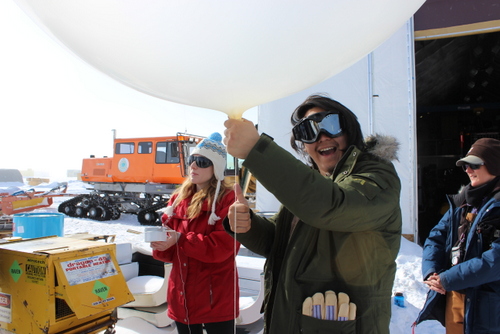
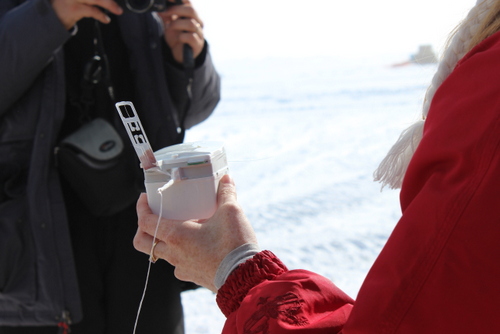
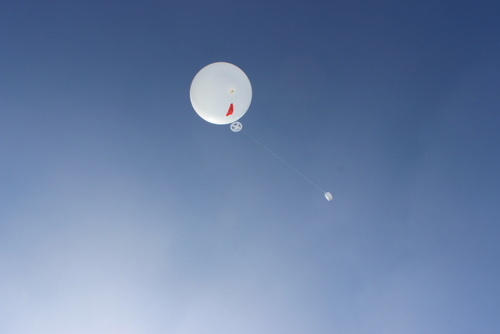
After watching the balloon float away, we went to the MSF (Mobile Science Facility) building and studied the snowflakes that had fallen and learned what their importance to the scientific community is. We learned a little about the ICECAPS project.
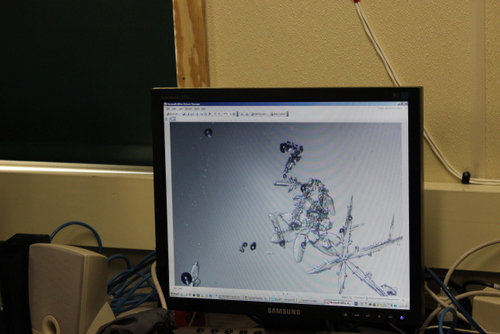
After lunch Max taught us to drill a firn core sample, and then how to slice it so that the samples can be melted down, studied, and sent to Colorado where they will undergo further study.
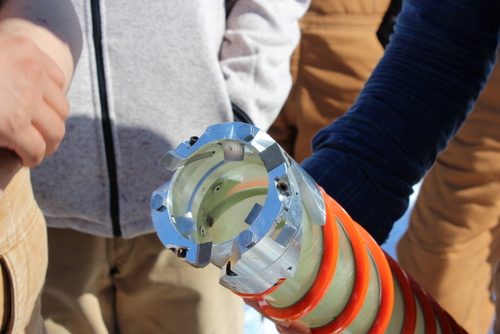
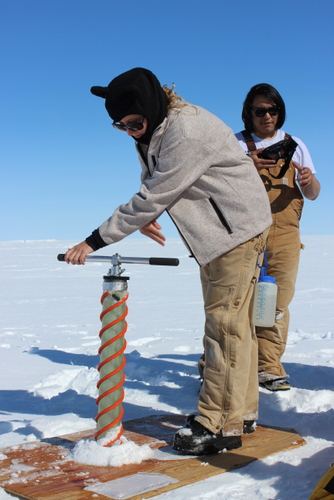
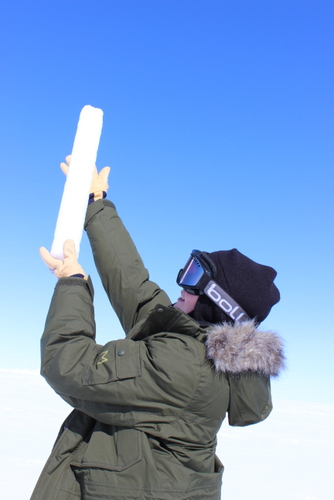

When we were finished with drilling firn cores, we met with Katy Hess, the station manager. She showed us how the airplane runway is always in great condition because it is always being groomed and flattened. We tested this with a ramm sonde device that is a two kilogram weight being dropped onto a metal rod marked every centimeter; this is a test for the density of the skiway.
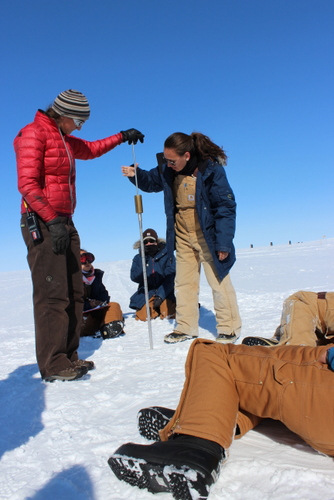
When the test was over, she showed us around the camp. We saw the generators that keep this camp alive, and snow melters which is how the station gets its water. We also learned that this station has two back-up generators; one of the generators next to the main one, and another one in a separate building, if something were to happen to the main building. The water that is used here is completely from melted ice, that is melted by the waste heat being given off by the generators.
After our tour was over, we got some free time and we used that time to fool around in the snow (SNOWBALL FIGHT!). Not long before the dinner calls, we learned how to tie knots into a cool design that makes a great addition to a keychain or zipper pull.

Dave started to play some music on piano and Alden was singing while Dave was playing the piano. After they played some 3 songs Max came in to play some drums with buckets. We finished off this lovely day by hanging out, learning knew knots, learning about the jobs here, and talking to the unique and very friendly people that make this place run throughout the long harsh year. If you’d look around then you’d see smiling faces, people talking, people singing, as well as the confused faces of the people tying knots. Just another day in this wonderful, ironically ice covered place called Greenland.
Weather at 9:41 p.m.
Temperature: -18 C, -1 F
Windspeed and direction: 9 knots, 43 NE
Air pressure: 679 mb


Comments